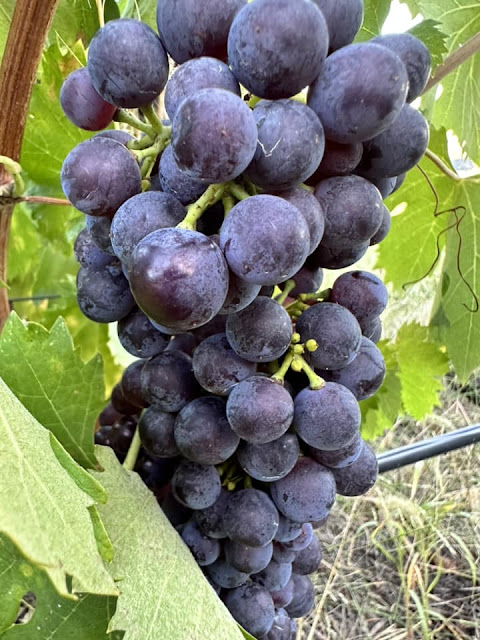I’ll be rounding out my features this month on the Emilia Romagna and Liguria wine regions with a focus on the Rossese grape. In the 10 years I’ve been writing Vino Travels I’ve only featured a wine made from this grape once and never really discussed the grape so let’s learn more.
What is the Rossese grape?
Rossese is a red grape found in the Liguria region of northwestern Italy bordering France and on the western side of Liguria itself. It is best known for the wines of the Rossese di Dolceaqua DOC. It can be found as single varietal, but also as a blending partner. It is one of the top red grapes of the Liguria wine region along with Dolcetto. It is genetically identical to the French grape, Tibouren, from the Provence area of France where it is mostly produced as a rosé.
 |
| Rossese grapes of Maccario Dringenberg |
Rossese occupies a small piece of the Ligurian vineyards, only about 200 acres, so production is small and harvesting is challenging on the steep, terraced vineyards. All the work is done by hand as using machinery is not an option due to the structure of the land. It may be a challenge to locate some of these wines, but that makes it all the more fun to try and explore either on a visit to Liguria or if you’re lucky enough to stumble upon a bottle.
Although I don’t have a specific wine to share this week I’m reverting back to a feature on the native grapes Liguria I wrote a few years back when I shared the 2017 Danila Pisano Rossese di Dolceaqua DOC.
Next week I’m taking a quick jump back to Toscana since I had some unforeseen circumstances happen and never got to share a virtual tasting I attended in late spring focused on the Vino Nobile di Montepulciano grape hosted by the Consorzio and guest speaker Antonio Galloni.
No comments:
Post a Comment